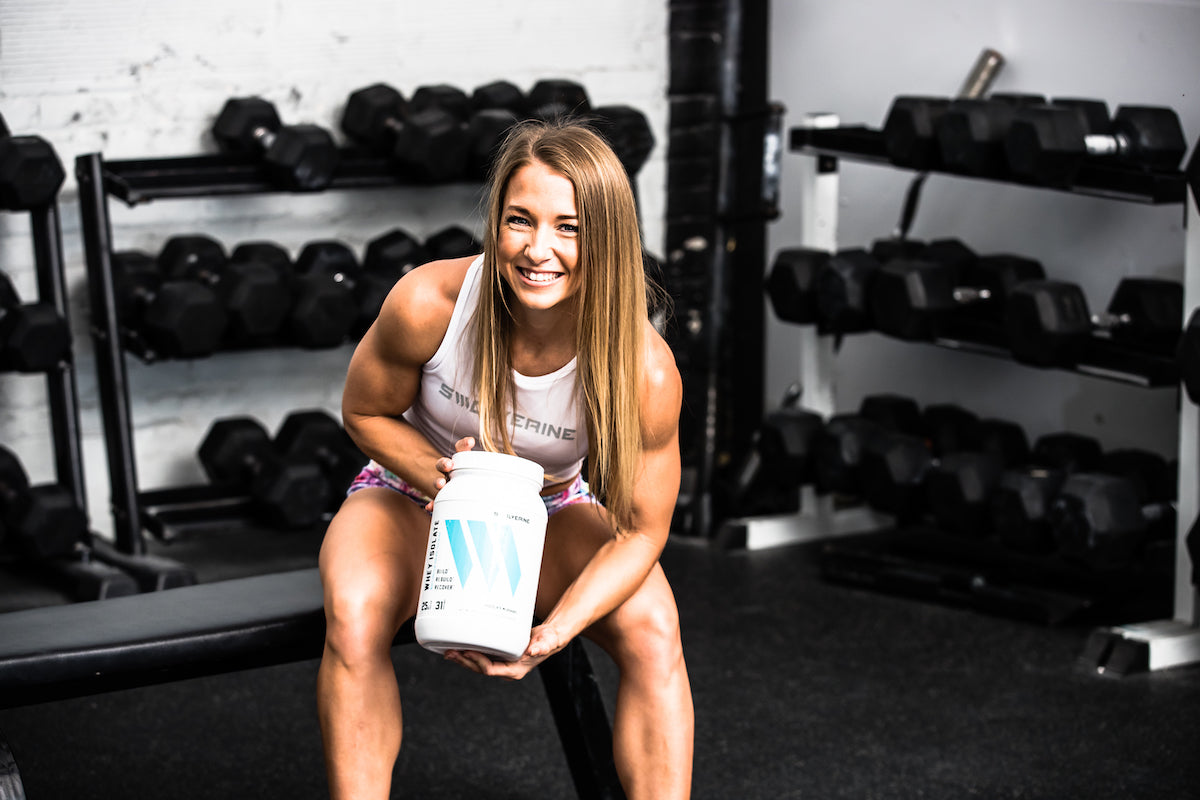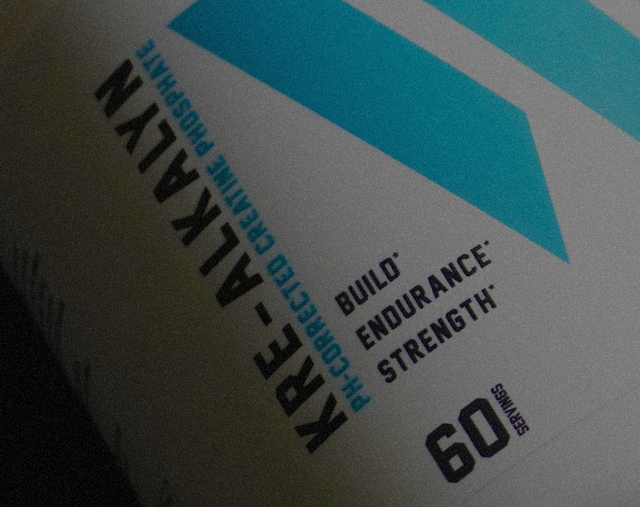One of the questions we get asked on a weekly basis, is what’s the difference between Whey vs Casein protein? Both whey and casein are a derivative of cow’s milk. However, both offer slightly different benefits, dependent upon your athletic aspirations and fitness goals. We’re going to get into the benefits, differences, and uses of whey vs casein.
In this article, you will learn
- What is Whey Protein?
- What Are The Benefits Of Whey Protein?
- What is Casein Protein?
- What Are The Benefits Of Casein Protein?
- What’s The Difference Between Whey Vs. Casein?
- When Should I Take Whey Protein Vs. Casein Protein?
- Which One Is Better Whey Vs. Casein?
What Is Whey Protein?

Whey protein is a complete source of high-quality protein derived from cow's milk. Whey protein has a very high concentration of the essential amino acids, responsible for building and rebuilding lean muscle mass called the branched-chain amino acids (BCAAs). BCAAs are comprised of leucine, isoleucine, and valine Studies have shown that the branched-chain amino acids, especially leucine is responsible for enhancing skeletal muscle and mass.
RELATED ARTICLE What Are The Benefits Of BCAAs?
Whey can come in a variety of different forms, namely whey isolate and whey hydrolysate. The difference between hey, whey isolate, and hydrolysate is that whey protein concentrate is composed of 70-80% pure protein and contains over 50% lactose, with a higher content of fat and carbohydrates, as compared to whey protein isolate and hydrolysate.
RELATED ARTICLE Whey Vs Whey Isolate: What Type Of Whey Protein Is The Best?
What Are The Benefits Of Whey Protein?
One of the many benefits of whey protein as compared to casein is its fast absorption rate and bioavailability. Whey has a high concentration of amino acids, especially the branched-chain amino acids, which are responsible for protein synthesis or the muscle-building process and repairing muscle mass tissue [R].
RELATED ARTICLE Why Whey Protein Isolate Is The Best Type Of Whey
By consuming whey protein post-workout, you will obtain a positive amino acid balance, which will help benefit strength, building lean muscle mass, decrease body fat, enhance muscle recovery, and optimize body composition.
RELATED ARTICLE Post Workout Nutrition: What To Eat After Your Workout For The Best Results
What Is Casein Protein?
Casein protein is also found and derived from milk. When a coagulant is added to milk, the whey and the casein separate, leaving two distinct forms of protein. Casein protein has a much thicker consistency and moves through the gastrointestinal tract more slowly providing a long-sustained release of amino acids also referred to as the ‘amino-acid drip’. This is why casein is marketed to be consumed before bed, so that you can get an overnight supply of amino acids, to increase the anabolic process of muscle protein synthesis and build more muscle mass and strength [R].
What Are The Benefits Of Casein Protein?
According to a study published in The Journal Of the International Society Of Sports Nutrition, thirteen males participated in a 10-week exercise and dietary intervention while receiving 35 g casein daily. The study found that casein benefits an increase in building lean muscle mass (hypertrophy) and increases in strength, much like whey protein.
Therefore, much like whey protein, casein benefits increases in strength, building lean muscle mass, and optimizing body composition through sustained amino acid delivery.
What’s The Difference Between Whey Vs. Casein Protein?
A single glass of milk contains around 80% casein and 20% whey. If you were to let milk coagulate, casein would be the curd, while whey would be the liquid. This should give you an idea of the differences between how whey and casein are absorbed, which leads us into the main difference between whey and casein – absorption rate.
The biggest difference between whey vs. casein protein is the absorption rate. Casein and Whey are both very rich sources of protein and essential amino acids, which help build and rebuild lean muscle mass.

According to a study, which examined the differences between whey vs. casein pre and post-workout, the results indicated that there were no significant differences between whey vs. casein in regards to performance. Both groups experienced significant improvements in body composition, strength, and anaerobic performance when consuming either protein supplement pre- and post-exercise. However, no significant effects were observed between groups in changes in any variable [R].
Thus, both whey and casein protein provide performance benefits such as
- Increased Strength
- Building Lean Muscle mass
- Repairing Muscle Tissue For Faster Recovery
- Both are also rich in amino acids and are derived from milk
The biggest difference between whey vs casein is
- Digestion Rate
When Should I Take Whey Protein Vs. Casein Protein?
Whey protein should be taken immediately after your workout, or before your workout to provide a fast absorbing protein source, rich in amino acids to initiate the muscle rebuilding process. Protein, however, can be taken at any time of the day, to help you meet your macro goals, as well as be used as meals or snacks throughout the day.
RECOMMENDED PRODUCT Whey Isolate (30 Servings, Vanilla/Chocolate/Honey Cinnamon Peanut Butter/Red Velvet, Mint Chocolate Chip)
With a much slower absorption time, it’s recommended to take casein before bed. This will ensure a slow, sustained amino acid delivery, which will slow the rate of protein breakdown. Peak amino acid delivery will occur 3-4 hours after ingesting casein and can take up to 7 hours to completely absorb.
Which One Is Better Whey Vs. Casein?
Although both whey and casein protein are derived from dairy and have a high amino acid content, whey is considered to be more anabolic due to its rapid digestion rate. Yet despite this fact, studies suggest that even though whey initiates muscle protein synthesis faster than casein, there is no difference between performance indicators and body composition.
Both casein and whey are great sources of protein that can help improve athletic performance, increase strength, and optimize exercise recovery. Therefore, choosing one over the other won’t produce significantly different results. Supplementing whey or casein is extremely beneficial to your overall athletic performance, however, more studies comparing the consumption of whey vs casein protein pre- and post-exercise are needed to further determine if and/or how the two proteins types differ in promoting hypertrophy and improving anaerobic performance.
Ready To Start Stacking On More Gains?
Our rich and creamy Whey Protein Isolate is packed with 26 grams of ultra-pure cold-pressed, micro-filtered Whey Protein Isolate per serving. Sourced from the happiest grass-fed cows in America free of rBGH (recombinant bovine growth hormone), our Whey Protein Isolate is loaded with the building blocks you need, to build your athletic performance and strength. We'll turn your post-workout shake into the most exciting part of your workout.
SWOLVERINE is an endurance athlete and active lifestyle brand. Made for the elite athlete, and the strong-willed our products were designed to fuel your athletic performance. We perform when you perform.
We believe that everyone can optimize not only their athletic performance but their human potential. The way we believe we can optimize performance is through transparency, clinically effective doses, and clinically proven ingredients with evidence-based outcomes. We provide the nutrients you need to power your active lifestyle.
References
Joy, Jordan M et al. “Daytime and nighttime casein supplements similarly increase muscle size and strength in response to resistance training earlier in the day: a preliminary investigation.” Journal of the International Society of Sports Nutrition 15,1 24. 15 May. 2018, doi:10.1186/s12970-018-0228-9
Volek JS, Volk BM, Gómez AL, et al. Whey protein supplementation during resistance training augments lean body mass. J Am Coll Nutr. 2013;32(2):122-35.
Wilborn, Colin D et al. “The Effects of Pre- and Post-Exercise Whey vs. Casein Protein Consumption on Body Composition and Performance Measures in Collegiate Female Athletes.” Journal of sports science & medicine 12,1 74-9. 1 Mar. 2013
Wolfe, R. R. (2001). Control of muscle protein breakdown: effects of activity and nutritional states. International Journal of Sport Nutrition and Exercise Metabolism, 11(s1), S164-S169.
Miller, S. L., Tipton, K. D., Chinkes, D. L., Wolf, S. E., & Wolfe, R. R. (2003). Independent and combined effects of amino acids and glucose after resistance exercise. Medicine & Science in Sports & Exercise, 35(3), 449-455.
Dangin, M., Boirie, Y., Garcia-Rodenas, C., Gachon, P., Fauquant, J., Callier, P., ... & Beaufrère, B. (2001). The digestion rate of protein is an independent regulating factor of postprandial protein retention. American Journal of Physiology-Endocrinology And Metabolism, 280(2), E340-E348.
Tipton, K. D., Elliott, T. A., Cree, M. G., Wolf, S. E., Sanford, A. P., & Wolfe, R. R. (2004). Ingestion of casein and whey proteins result in muscle anabolism after resistance exercise. Medicine & Science in Sports & Exercise, 36(12), 2073-2081.







